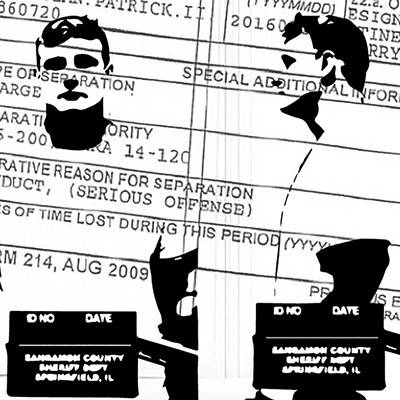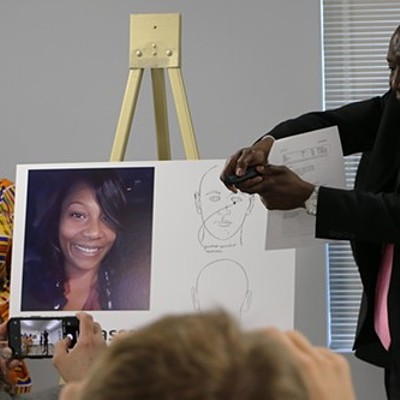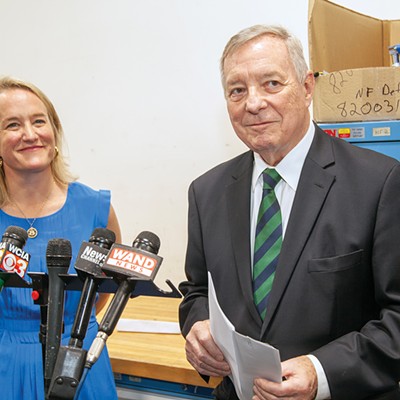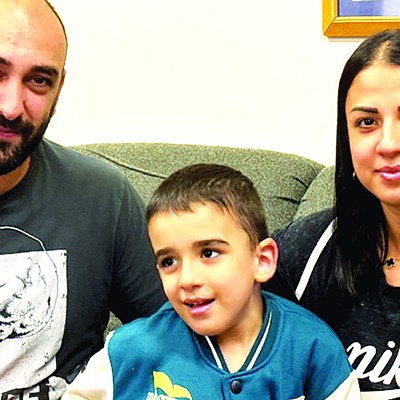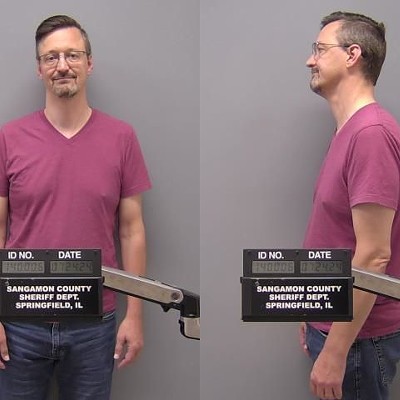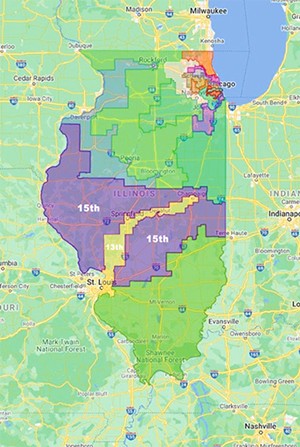
The map was drawn by the General Assembly, which is controlled by Democrats, and signed into law by Pritzker, who is also a Democrat.
"Unfortunately, what Democrats did here is perfectly legal," said Madeline Doubek, executive director of Change Illinois, a Des Plaines-based political reform group. But Texas comes close to being as gerrymandered as Illinois, she said.
Texas, of course, is gerrymandered by Republicans. And there is the rub.
"If Democrats in Illinois were to quit gerrymandering, they'd feel like they were engaging in unilateral disarmament," said Robin Johnson, a Democratic consultant who lectures at Monmouth College.
That said, Johnson said gerrymandering is harmful to democracy since it causes representatives to pander to extremists within their parties at the expense of moderate and independent voters.
Doubek, a veteran political reformer and former Illinois journalist, said of the 17 proposed congressional districts in Illinois, only one – the 17th in northwestern Illinois – isn't designed to greatly favor one political party or another.
But what does this map mean for folks living in Sangamon County? Well, the county will be divided between two congressional districts.
The 13th Congressional District snakes its way up from East St. Louis, engulfing Collinsville, Chatham, Springfield, Decatur and Champaign. It's designed to elect a Democrat. The other district is the 15th Congressional District, which stretches from the Mississippi River to the Indiana border and includes much of rural western and central Illinois.
The Princeton Gerrymandering Project says the 15th Congressional District will likely vote 67% Republican. On the other hand, it says the 13th Congressional District will likely vote 56% Democratic.
This means it is unlikely voters will usually have a choice of viable candidates in general elections because the party in the minority in that district would view spending money and staff time there as a waste.
Bill Houlihan, Democratic central committeeman for the 18th Congressional District, put it this way. "When you have a slim majority in Congress – a five-vote lead right now on the House side – you're going to put money into districts where you have a fighting chance to win. And this is an area (the 15th Congressional District) where we are not going to have a chance."
U.S. Rep. Rodney Davis, R-Taylorville, is the favored Republican to represent the reconfigured 15th District.
Houlihan plans to run for Democratic state central committeeman for the 13th Congressional District because the 18th District, where he currently lives, is being eliminated.
Houlihan noted the new map promotes greater Hispanic congressional representation in the Chicago area. He added that since the U.S. Census data called for the loss of one of the state's congressional seats, it became more difficult to draft a map.
"I definitely think it's a fair map," he said. "It's always tough to draw a map when you're losing a district and there's been population loss in most parts of our state. I think only two of the 96 downstate counties actually gained population."
Springfield lawyer Don Tracy, who heads the Illinois Republican Party, said mapmakers tried to pack as many Republican voters into the 15th District to reduce their numbers in neighboring districts.
"It's a unique and very aggressive form of gerrymandering; I might say that the district that the city of Springfield will be in is clearly a Democratic district. But in a good year, a Republican could win," he said.
When he campaigned for governor, Pritzker pledged not to sign a partisan map. Nonetheless, he did sign one Nov. 23.
"I'm not surprised, but I am disappointed," Doubek said. "There's been several promises broken here and, you know, an absolute disregard for community after community and people who tried to advocate for equitable representation. They all were disrespected and ignored."
Johnson said, "A politician who doesn't keep his promises during the campaign feeds the citizens' cynicism that all politicians are corrupt and none of them are telling the truth."
Brian Gaines, a political science professor at University of Illinois Urbana-Champaign, said gerrymandering is unpopular with voters, even those who identify with a political party that may benefit.
"Republicans don't necessarily want to live in a district where there's no way a Republican could lose. The same could be said for Democrats. Gerrymandering isn't popular with voters, except among the most extreme partisans. It probably produces less competitive elections, and people like close races. Politicians don't, because they like job security."
Scott Reeder, a staff writer for Illinois Times, can be reached at [email protected].





